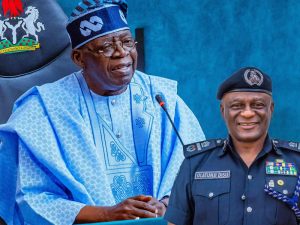In a decisive move to curb rising insecurity, President Bola Tinubu has approved the establishment of a National Forest Guard System, tasking states with the recruitment of over 130,000 armed operatives to secure Nigeria’s 1,129 forest reserves.
The announcement was made on Wednesday by the President’s Special Adviser on Media and Public Communication, Sunday Dare, following the expanded Federal Executive Council meeting held on Monday. The guards will be heavily armed, well-trained, and supervised jointly by the Office of the National Security Adviser (ONSA) and the Federal Ministry of Environment.
Each state is to recruit between 2,000 and 5,000 forest guards, based on financial capacity. The guards’ primary mission is to flush out terrorists, kidnappers, and bandits who have turned the forests into operational bases.
The initiative follows growing concern over the invasion of forest reserves by armed groups. Reports from states like Kwara, Benue, and Oyo reveal that forest areas are now serving as transit routes and hideouts for criminal gangs and foreign insurgents.
While some states have existing forest security outfits under ministries of agriculture, the plan is to standardise, arm, and scale up these teams under a nationally coordinated structure.
However, security experts have expressed divergent views. Retired Army General Peter Aro praised the initiative but warned against dual supervision by ONSA and the Environment Ministry, which he believes could create bureaucratic confusion and undermine operational independence. He called for institutional autonomy similar to that enjoyed by agencies like the NSCDC.
Conversely, security analyst Chidi Omeje strongly criticised the plan, warning it could result in mass casualties if forest guards confront heavily armed bandits. He advocated instead for increased military deployment, aerial surveillance, and advanced technological support, arguing that forest guards lack the capacity to face the high-level threat present in Nigeria’s forests.
Despite mixed reactions, the federal government insists the recruitment process will be strictly vetted with involvement from security agencies, traditional rulers, and community leaders. The goal is to enhance state-level policing efforts, with many states already moving to operationalise local guard units.
The initiative marks a significant step in Nigeria’s evolving strategy to tackle rural insecurity, amid ongoing discussions on state policing and constitutional amendments.









